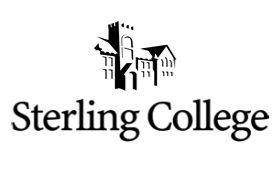Sterling College's Assessment Results in Best Reaccreditation Terms since 1977

For colleges, the official news that they have been approved for reaccreditation is much like the diplomas their students receive during graduation: the "piece of paper" stands for a lot of hard work.
But it also symbolizes progress and success, which is why, when Sterling College's President Dr. Paul J. Maurer announced last week that the College had received an official 10-year reaccreditation, he said, "This is a truly significant moment for Sterling College. Join me in giving thanks to God for his goodness."
This is Sterling's best accreditation result from the Higher Learning Commission (HLC) since 1977. the College will report on finance in 2011 and on the assessment of student learning in 2012, but the HLC has not scheduled any return visits between now and the 2019-2020 academic year. The HLC is the accrediting agency for more than 1000 colleges and universities in 19 states, including Kansas State University and the University of Kansas. Sterling College has been accredited continuously by the HLC since 1957.
The reaccreditation was not the only indication from the HLC that Sterling is meeting and exceeding expectations. When the HLC evaluation team met on the Sterling campus last December, the team spent a great deal of time reviewing the College's self-study, the 286-page document that provides evidence of Sterling's progress toward the HLC's five core criteria. The HLC team was so impressed with SC's self-study that it invited Director of Institutional Assessment Gentry Sutton and Associate Dean/former Director of Assessment Dr. Kevin Hill to showcase the document at the HLC's annual conference in April. This would allow other school representatives, going through their own self-evaluation process, to view a successful self-study and ask Sutton and Hill questions regarding the process.
Sutton and Hill had already submitted a presentation proposal for the HLC's annual conference, and the evaluation visit had a positive effect on that as well: their proposal was accepted almost immediately following the December visit. Early in April, Sutton and Hill traveled to Chicago for the annual conference. They shared the self-study during the showcase period and then answered questions about it during the self-study fair. "There were probably only 10 minutes in the entire three hours of the session that we were NOT talking to people," said Sutton. "It was good to be able to help other people go through the process we had just completed."
Then Sutton and Hill presented to more than 70 people on the evaluation of goals that are specific to an institution. A Christ-centered mission and a focus on servant leadership are specific goals for Sterling College. At the HLC's previous visit, Sterling had been challenged to incorporate these goals into every area of the institution and especially into every academic program. "Our Christ- and service-centered focus is what makes us distinct," said Dr. Maurer, "Therefore, it is vital that we continually evaluate our progress in this area. Gentry (Sutton) and Kevin (Hill) were both instrumental in this ongoing self-evaluation, and they conveyed this process-and Sterling's progress-very well at the HLC conference."
Though Sterling was well represented at the conference, the real test was the HLC's reaccreditation decision, and the College had to wait until May 10 to hear the result. After Dr. Maurer shared the good news and gave thanks to God, he also gave thanks to the people involved. "I want to express my gratitude to you, the members of faculty and staff, as well as the trustees, who have worked so diligently toward this reality. Again, this is a truly significant moment for Sterling College."


